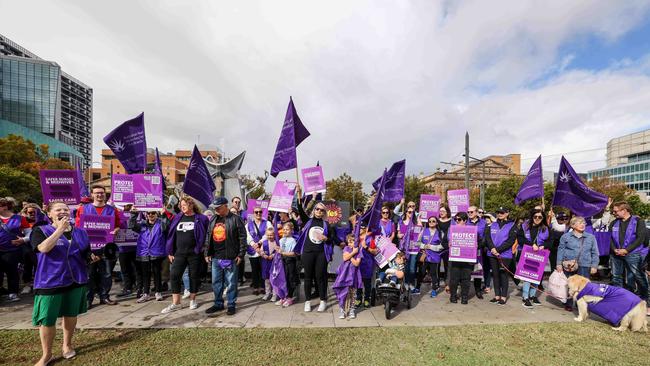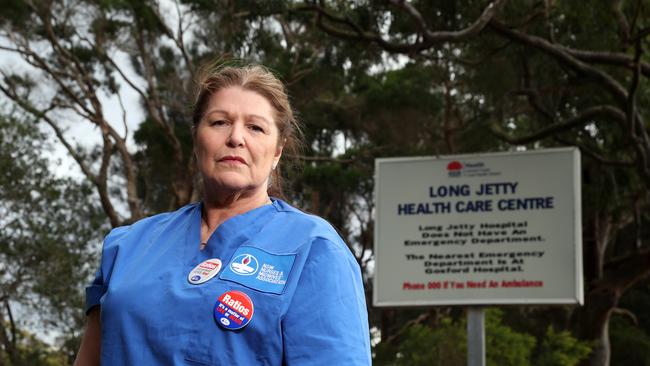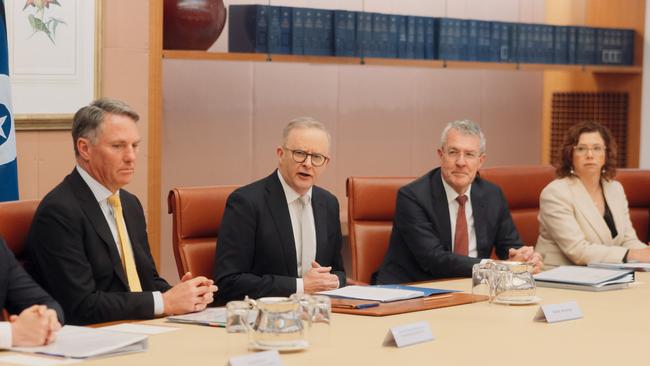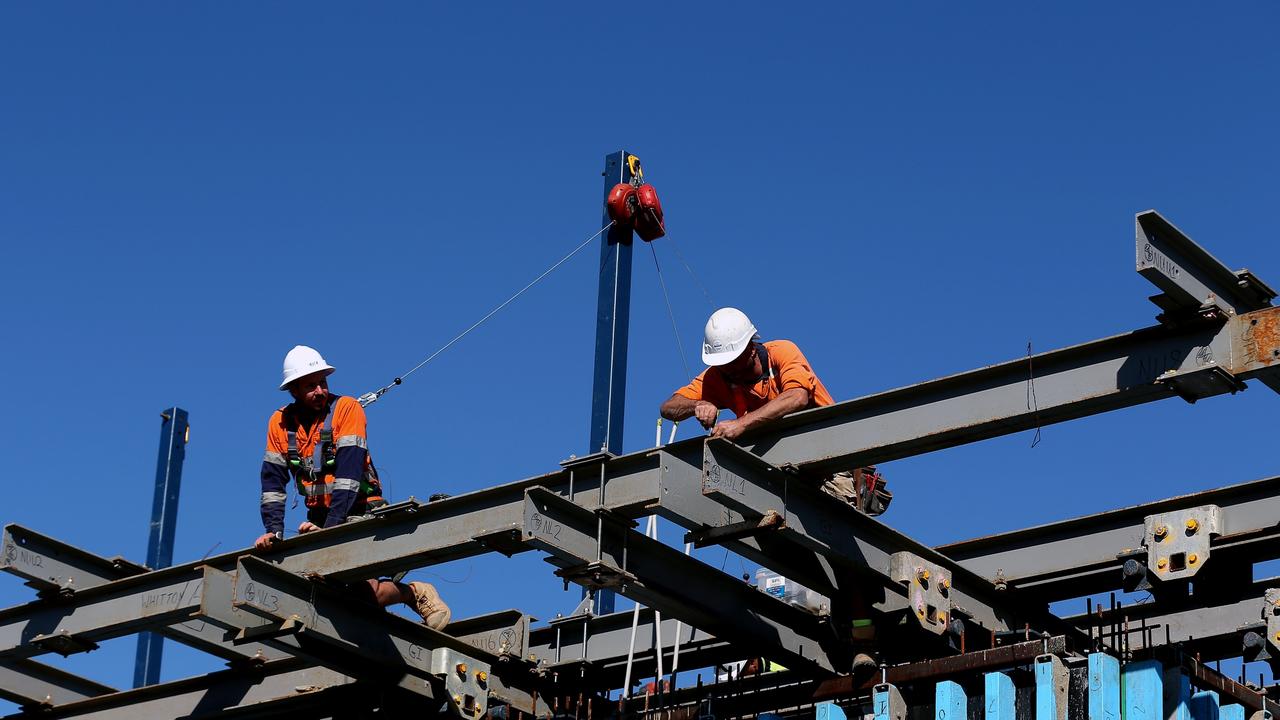
Today, I will put forward a way to greatly reduce the nursing and paramedic crisis in our health sector. Cost rises in health have become an important force in boosting inflation and interest rates, and we need new ideas.
While the Federal Reserve in the US has now put interest rate reductions on the agenda, Australia’s inflation is running at a subsidised annual rate of 4 per cent.
We have a long way to go on the inflation front to follow the US in placing interest rate reductions on our agenda.
Health costs are rising at a staggering annual rate of 5.7 per cent and are the third biggest inflation booster (only alcohol/tobacco and insurance/financial services rank higher).
A group of nurses has formed the Nurses’ Professional Association of Australia and are putting forward the first practical solution to the dilemma of attracting more people to their profession via much higher pay without adversely impacting state finances.

Indeed, if fully implemented, the nurses’ plan might even leave money to boost the bottom line of some states.
This is about people at the grassroots of a profession telling their bosses – state governments – how to run the system more effectively at a much lower cost.
While the 2021-22 figures they have produced to justify their plan are two years old, the structural problems are likely to have become worse in those two years.
The nurses and paramedics believe that they are highly qualified professionals and don’t need massive bureaucracies that try to tell them what to do in great detail.
In Australia, on average, there is around one bureaucrat in administration for every 4.6 professionals actually doing the job of nursing and paramedics.
Some countries operate their hospitals and paramedic services with around one administrator for every 10 professionals.
New Zealand has heard the messages from their grassroots nurses and paramedics and has removed the top management layer in the hospital system so that the required reductions in the bureaucracy can be made to finance higher rewards to attract more professionals.
Often those in administration came from the operational ranks and don’t have to be retrenched, but can be retrained to return to being active professionals.
According to the Nurses’ Professional Association, Victoria, Queensland and Tasmania each have one administrator to around 4.2 nurses. South Australia, the NT and the ACT are worse and require one administrator for around 3.7 nurses. NSW is the best, with one administrator to around five nurses.
The Nurses Association believes that nationally there is more than $7bn a year being wasted on excess administration which, if allocated to paying operating professionals higher salaries, and therefore being able to hiring more people, would transform health services in Australia.
Isolating the problem is arguably the easy part. When it comes to taking action, the great difficulty is that the official nurses’ unions not only also represent people in the administration, but a large number of their top union representatives have high posts in the bureaucracy.
The official unions are therefore in no position to even hint that the answer to the problem is to change the ratios so that there are more professionals on the ground and fewer people in the bureaucracy.
And of course there are ALP governments in most states and in Canberra. Their union links make implementing a step-by-step program to change the way hospitals and paramedics are managed very difficult.

I suspect the problem in hospitals and health is duplicated in many areas of state and federal governments. There is not the knowledge in the public service of how to run operations more efficiently.
NZ has the same problem, and it started the task in the health sector by changing the top management. A similar strategy will be required in Australia.
But that process can’t start until there is clear knowledge in the community of the structural problem.
Bridging the knowledge gap is difficult because the unions represent both the bureaucracy and the professionals and the government says nothing.
But we need to start the task.
Meanwhile, we have a housing industry that is desperate for lower interest rates but needs to realise that in the service sector inflation remains at 4.5 per cent and the latest inflation figures have been held back by short term subsidies and the lower cost of goods from China.
In the retail sector those not impacted by mortgage and rent stress lifted their spending in June, and it continued in July with a larger part of July’s spending diverted to travel both local and overseas.
Most of Australia’s creation of jobs comes where these are embedded in government revenue, which includes the health sector. This high spending by governments endangers the inflation fight.
We need to look outside the established boxes for solutions, which is not easy but is essential.





